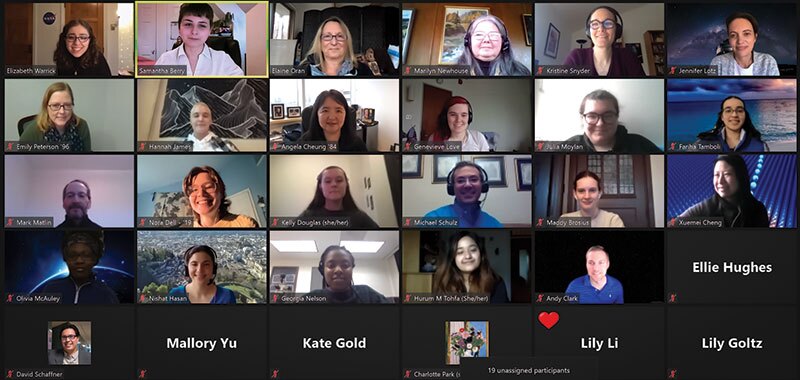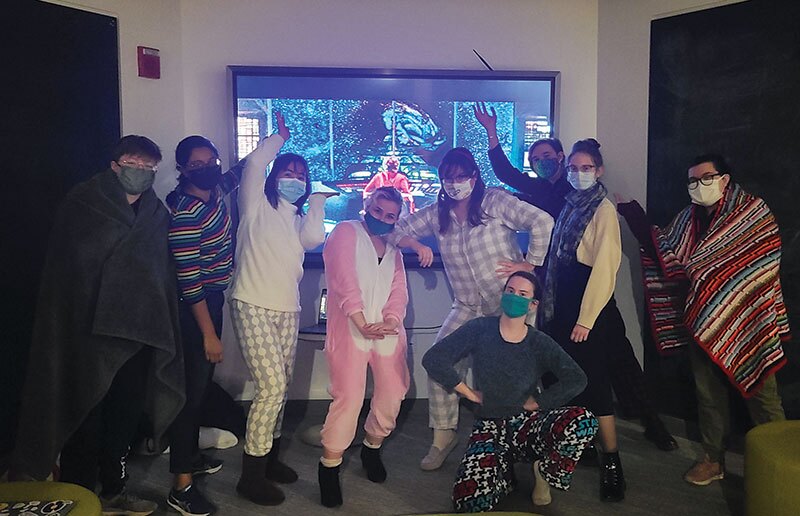Shifting a Department Culture
“I’ve learned that people will forget what you said, people will forget what you did, but people will never forget how you made them feel.” – Maya Angelou
Among the 18 strike demands were calls for transparency, reparations, and administrative change. A lot of ugly truths were uncovered during the strike. A big one was the lack of effective equity, diversity, and inclusion efforts in our physics department.
As a step toward change, our department then joined the American Institute of Physics (AIP) TEAM-UP program as a departmental team. TEAM-UP, the AIP National Task Force to Elevate African American Representation in Undergraduate Physics & Astronomy, released a report in 2020 that addressed the ongoing underrepresentation of African Americans in these departments. It details systemic issues contributing to the underrepresentation and provides actionable recommendations for reversing the trend.
TEAM-UP found that the main factors that contribute to the success of African American students in physics and astronomy departments are a sense of belonging, physics identity, academic support, personal support, and leadership and structures. Departmental teams acknowledge the grave importance of these factors and commit to implementing the findings from this report.
Our departmental team consisted of the entire faculty plus graduate and undergraduate representatives. Three of the four undergraduates were SPS leaders. Despite our commitment, our team isn’t yet a success story. Our department is understaffed and lacks a single point of contact on this project. Early on, communication broke down and only recently have we started working together again on these goals.
At the beginning of the 2021 spring semester, the SPS leadership, only four strong at the time, decided to take things into our own hands! After some successful virtual game nights an idea hit us: how easy would it be to have an alumni panel over Zoom? We thought an alumni panel could increase students’ sense of belonging through the community-building aspect and contribute to their physics identity by recognizing students as future professionals.
What followed was an amazing virtual event with nine alumni panelists. We started with a general Q&A, then split the panelists between two breakout rooms and allowed participants to ask questions. We tried to acknowledge the diverse career options for physics majors by including a variety of alumni, from a planetarium director to a patent attorney for a lab. The turnout was unexpectedly high. Looking back, we should have made more breakout rooms!
Because of how successful this panel was, our SPS executive board would like to create another virtual alumni event this spring. However, we haven’t forgotten about the TEAM-UP factors we didn’t touch on last year. During the fall 2021 semester we created a weekly Physics Clinic, a four-hour window where any physics student can drop in and ask questions. We’ve also advocated for more transparency by having undergraduate representatives at department meetings. We are planning to build outreach relationships with our local community and the Philadelphia region, along with so much more.
The SPS chapter at Bryn Mawr College has taken on the role of implementing change. First and foremost, we strive to make sure everyone in our department feels welcomed and accepted. We strive to be more inclusive by following the TEAM-UP recommendations and also giving agency to peers, caring about long-term relationships and partnerships, advocating for the legitimization of historically excluded groups, and holding the leadership in our department and administration accountable.

A screenshot from the virtual alumni panel hosted by Bryn Mawr’s SPS chapter. Image courtesy of Samantha Berry.

Bryn Mawr SPS members enjoy a pajama movie night during finals week in the fall of 2021. Photo courtesy of the chapter.
About TEAM-UP
The TEAM-UP report highlights long-term systemic issues within physics and astronomy that have contributed to the underrepresentation of African Americans in these fields and actionable recommendations for reversing the trend.
The Time Is Now: Systemic Changes to Increase African Americans with Bachelor’s Degrees in Physics and Astronomy aip.org/diversity-initiatives/team-up-task-force



